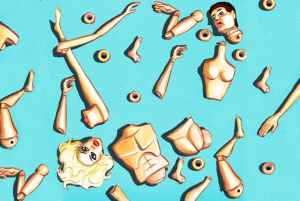“I died of a surfeit of doctors,” read one Roman funerary inscription. But where did this surfeit come from? Let Pliny the Elder (d. AD 79) explain.
Pliny devoted book twenty-nine of his Natural History (a vast encyclopedia of Roman life) to the history of medicine. Claiming that no discipline “undergoes more frequent changes, and none is more profitable either,” Pliny pointed the finger at Greek doctors. These had been welcomed into Rome from the third century bc with their fancy philosophical ideas — all different — which their eloquence persuaded people immediately to adopt in place of the good old experience-based Roman herbal treatments, overseen by the trusty master of the house. The new treatments were killers, but there was no retribution: “Only a doctor can commit homicide with complete impunity.” Pliny went on: “We ignore the danger, being seduced by wishful thinking… not caring about what really is necessary for our own health.”
Given the vast sums which could be made from a gullible populace, it is no surprise that becoming a doctor was very popular (we hear of some who began practicing as teenagers). All it required was to associate yourself with a Greek doctor of your choice, watch and learn from him, and off you went. Even better if you could dream up some novel treatment that cost the earth and take advantage of “the stupid convictions of those who consider nothing beneficial unless it is expensive.” The only consolation Pliny could turn up was the sheer number of these medical charlatans: “at least the competition keeps the fees down.”
Rome’s “surfeit of doctors,” arising from those exploiting the gullibility of the ill, reminds one of similar hucksters to be found on the web. But any scheme for increasing numbers by decreasing medical training may play into such people’s hands. For example, the web is a marvelous resource for trained doctors, who can spot hucksters a mile off. But what of the less well-trained, who will rely on it even more — let alone of their patients?
This article was originally published in The Spectator’s October 2023 World edition.


















